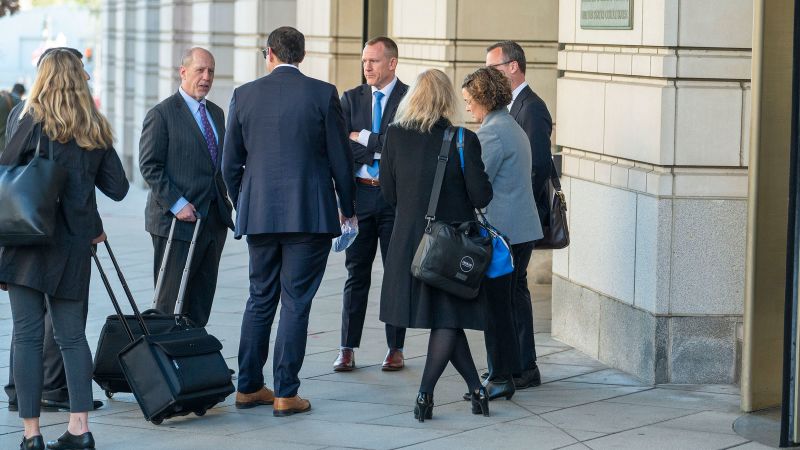A recent court ruling has handed a significant win to the White House, allowing it to exclude the Associated Press (AP) from accessing crucial locations such as the Oval Office, Mar-a-Lago, and Air Force One. This outcome stems from a federal appeals court decision that supports the notion that certain spaces in the White House are not open to the general public or large groups of media personnel. Essentially, this means that the administration now holds the discretion to determine which journalists can gain admittance to these spaces, thereby modifying longstanding protocols regarding press access and the flow of information from the presidency.
The backdrop to this decision includes a previous ruling from a lower court, which had blocked the Trump administration’s authority to exclude the AP from these critical areas. However, the recent appellate decision represents a setback for the AP, a prominent news organization with extensive global reach, and symbolizes a broader struggle concerning the interaction between governmental authority and media freedoms. This will likely have ripple effects on the norms related to press access, which many argue are essential for transparency in governance.
President Donald Trump celebrated the development, proclaiming on Truth Social that it was a “big WIN over AP today.” This sentiment was echoed by his press secretary, Karoline Leavitt, who commented on X (previously known as Twitter) that no outlet had a guaranteed right to special access, particularly to key areas like the Oval Office. The AP responded with disappointment to the ruling, highlighting that they were considering their legal options moving forward. They have consistently contended that imposing punitive restrictions on White House correspondents violates constitutional protections.
The White House’s approach to managing press access has transformed significantly under the Trump administration. This year, officials have tightened control over the selection of news outlets permitted to be part of the daily press “pool” during presidential events. The nature of this “pool” is critical, given that many events, such as photo opportunities in the Oval Office or question-and-answer sessions on Air Force One, are conducted in small group settings, making the determination of who gets in pivotal.
Historically, the formation of the press pool was managed by the White House Correspondents’ Association, an independent body representing journalists. However, the Trump administration has asserted authority over this process, favoring newer media outfits that align more closely with conservative viewpoints and significantly limiting the AP’s access. The tension reached a peak earlier this year when the Trump administration engaged in a dispute concerning the naming convention for the Gulf of Mexico, as Trump sought to rename it the Gulf of America. Upon rejection of this change by the AP, the administration claimed that the coverage was “divisive” and thereafter barred AP reporters from attending certain events, culminating in a First Amendment legal battle that underscored the friction between the press and the Trump White House.
Despite the legal challenges, the administration has stated that it will maintain participation eligibility in the press pool regardless of a news outlet’s expressed viewpoints. Following a previous legal ruling that favored the AP, Trump removed the traditional wire position from the daily press pool, a move perceived as an attempt to comply with legal scrutiny while disadvantaging the AP further.
Following this decision, the AP maintains an opportunity to question the president on certain occasions, though not as frequently as prior and with the knowledge that ultimate control lies with the administration. The appeals court’s ruling—decided with a split 2-1 vote—has opened the door for further disputes regarding media access to the presidential office, as it establishes precedent that permits certain actions against the AP under the banner of managing restricted spaces.
Judge Neomi Rao articulated the court’s position, asserting that the Oval Office, being a niche area, does not function as a public forum for open discussions; hence, access is subject to the president’s discretion. Importantly, this ruling does not extend to the East Room of the White House, where larger press briefings can take place. Amidst these developments, Trump perceived the lawsuit as a challenge to his ability to reshape the narrative regarding geographic names, indicating a significant moment for the administration’s stance toward media relations. The AP, however, remains steadfast in adhering to its editorial guidelines, notwithstanding the fluctuating access it experiences.
As the situation continues to unfold, it reflects a broader conversation on the role of the press in contemporary governance and the ongoing power dynamics between media organizations and political institutions. The discourse surrounding press freedoms remains ever-relevant, particularly in light of such contentious legal decisions. This analysis has been updated with additional context and contributions from CNN’s Samantha Waldenberg.



